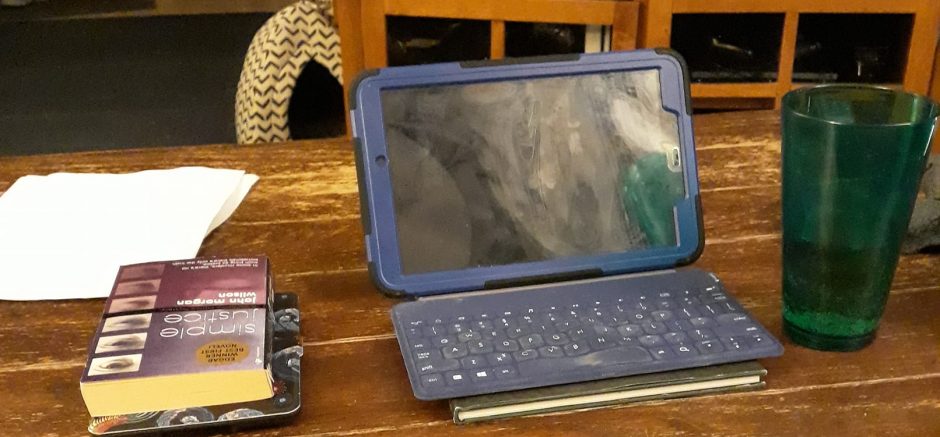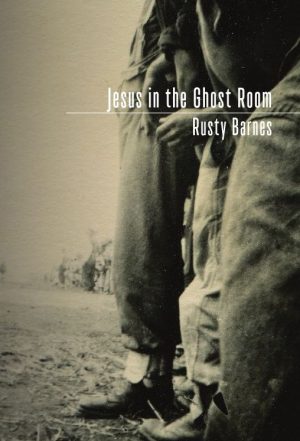"There is something straight no chaser about Barnes' poetry. He is not a polite writer–he easily traverses the raw to the profound.There is a frankness about his own shortcomings, his sexuality, his coming of age, his father, and the rural burg he was brought up in. Like the flash of a pedestrian Zippo lighter–Barnes brilliantly lights up his world and ours with images that will sear the reader if he or she does not exercise caution."
—Doug Holder, author of Last Night at the Wursthaus
"'It's pure magic and we only have so much' writes Rusty Barnes in one of the sharp-edged and luminous poems that make up Jesus in the Ghost Room. In language that is clear-eyed and unflinching–'This is the year of terrible things'–Barnes looks into the dark corners of life. But his lines shine a bit of light into those corners, enough to recall a father's hands, stained with grease after a day's work, the taste of a salted raw potato, the small certain moments that make our short lives bearable."
—Al Maginnes, author of The Next Place
"Rusty Barnes is a rugged and honest poet. His language is pure Americana, deeply entrenched in the everyday, in family and in place. The poems in Jesus in the Ghost Room pay homage to memory and are an ode to his late father, but with lines such as 'Oh Father/I wish I could invoke your smell,/the way your cigarette ashed onto/the sick-filled carpet on the edge/of what we could readily say,' it is clear that this collection is about salvation, an epic prayer for the human spirit and for an increasingly tumultuous world. Even when the poem is about pissing out a fire, Barnes raises his voice to what could only be a Higher Power. 'Long live the resin-/filled pine and the twigs I used for tinder.'"
—Joshua Michael Stewart, author of Break Every String
Visit Amazon to purchase Jesus in the Ghost Room.






